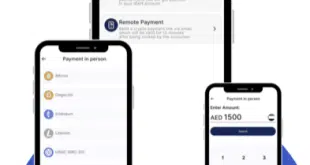An ongoing controversy regarding consumer losses to authorized but fraudulent transfers on the Zelle peer-to-peer platform has stirred at least some of the country’s biggest banks to work out a range of solutions, including wider adoption of scam defense and detection technology, sources tell Digital Transactions.
This development comes as at least three of the national banks that own Early Warning Services LLC, the company that operates Zelle, are working on a plan to reimburse victims of Zelle scams, according to reporting by The Wall Street Journal.
Peer-to-peer networks typically reimburse users for unauthorized transfers, but do not take responsibility for transactions users authorize, even if they are induced by a scammer. That problem has drawn the attention of U.S. Senators, who have investigated scams on Zelle and pressured the network to reimburse scam victims.
The issue has also reportedly caught the attention of the Consumer Financial Protection Bureau, which has grown more active in the past year under director Rohit Chopra, a former Federal Trade Commission member.
Meanwhile, a separate Wall Street Journal report also indicated that at least some community banks and credit unions may not stay in P2P programs like Zelle if rules changes force them to reimburse users for losses to scams. The Journal quoted sources at ICBA Bancard, a unit of the Independent Community Bankers of America, as well as at the National Association of Federally-Insured Credit Unions.
Of the 18 biggest U.S. financial institutions, half are reviewing their reimbursement policies while the other half are investigating new scam-detection and -defense technologies, according to David Mattei, a senior analyst at Aite Group, a Boston-based consultancy.
Mattei referred to a survey Aite conducted earlier this year. “This has been going on for most of 2022,” he says, though the pace may have quickened lately. “Financial institutions would certainly love to head off any additional regulations,” he adds. “It’s one of those tricky situations.”
The move lately to change the standard policy regarding reimbursing victims of scams on Zelle has been embraced by JPMorgan Chase & Co., Wells Fargo & Co., and Bank of America Corp., according to the Journal article, which cited “people familiar with the matter.”
The three megabanks are among the seven major U.S. institutions that own Scottsdale, Ariz.-based Early Warning. Under the developing plan, the bank that holds the account where funds were sent would return the money to the bank holding the sender’s account if the transfer was determined to have been the result of a scam, according to the Journal.
Early Warning in October released a statement responding to the Senate investigation and referring to “misleading reports of fraud and scams” on Zelle. Some 99.9% of transactions on Zelle are “sent without any report of fraud or scams,” the company said at the time. In a veiled reference to the Senate probe, the company added: “Any external analysis done is incomplete and does not reflect the efforts and data reported by more than 1,700 financial institutions on the Zelle Network.”
Beside BofA, Chase, and Wells, the owners of Early Warning include Capital One, PNC, Truist, and U.S. Bank.
Efforts to hold the banks that own Early Warning liable for losses due to authorized but fraudulent transfers may be counterproductive, Mattei warns. In at least some cases, customers can confound their banks’ best efforts, he says.
“The clients are just adamant about ‘transfer the money’” Mattei notes. In the end, “there’s going to be some level of pushback if they become liable for scam fraud,” he says. “It’s billions of dollars. They’re not going to take that lightly.”




